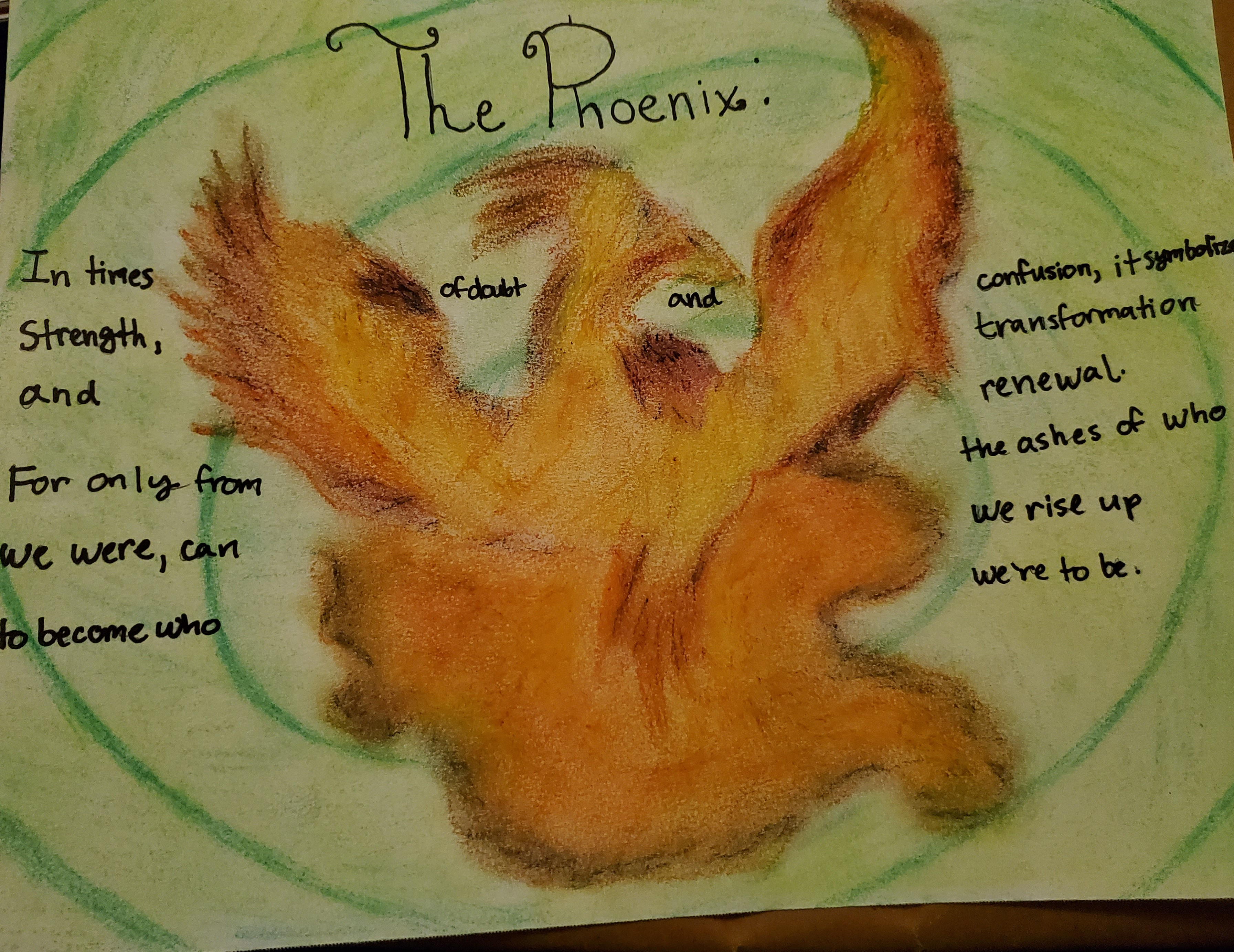The Phoenix Pt. 1
The Phoenix Thwack! I feel the heel of my foot make contact with the wood, but it doesn't go through. Urging myself not to get discouraged, I closed my eyes, blew out a sigh, and drew my foot back, preparing to strike again. ***** “How do I get the old me to die?” I hold my breath as I await his answer, worried that he might think me weird for asking. Thankfully, however, he only smiles and nods. “You test for your black belt,” Master Hart told me simply. “That's how you're gonna get the old you to die.” I don't immediately respond. Instead, I take a moment to reflect on our conversation and all the advice that he's just given me. Some of it has been practical, such as the key to more controlled kicks and how I have to retrain my instincts in sparring. The rest of it, though, pertained more to my growth as a person than my development as a martial artist. I'm sitting cross-legged on the sweaty mat, across from a 5th dan black belt in taekwondo who has decades more experience than me in both life and in the ring. We are so different in so many ways, and yet, after hearing his responses to my carefully thought-out interview questions, it is clear that we have faced similar struggles while progressing through the ranks. Mitchell Hart began taekwondo at the suggestion of his father, hoping to boost confidence and self-esteem after years of being bullied by his peers. He was unhappy with his body and hoped that the sport would help him improve his fitness, which it did. He was also much smaller and younger than the other students, which meant he was often underestimated. It wasn't until he received his 1st dan black belt that he was finally able to leave the old him behind. After competing at a national level and fighting off intrusive thoughts telling him he would never be good enough, he finally felt confident in saying that the young boy from his past was officially dead. Hearing his story brought me straight back to my high school days, though I had graduated over a decade ago. I had been underweight since middle school and had never managed to feel comfortable in my body, no matter how much weight I lost. It began in roughly the 3rd grade, when one of my “friends” told me, semi-jokingly, that I was easily the heaviest girl in the grade. It continued when I saw that starving myself was the only way to get attention from my parents, who were often too concerned with their careers to pay much attention to their offspring. It eventually got to the point where every meal was a competition with my older sister; if she wasn't eating, then I wasn't either. Our body weights had dropped so low that our parents started pulling us out of school to go to monthly weigh-ins at the doctor, which of course caused the other students to start asking a bunch of unwanted questions. Before every appointment, I would eat a heaping bowl of pasta and chug an entire bottle of water, leaving me desperate to use the restroom and my weight artificially high. I even tried wearing all the jewelry that I owned once, but they had unfortunately realized what I was trying to do and made me take it off, effectively foiling my plan. In addition to the weigh-ins, we would also be forced to speak to therapists who claimed to specialize in eating disorders, which were thankfully easier to navigate than the doctor's appointments. All I had to do was tell them what they wanted to hear, such as that I had never before realized how much they photoshopped magazines or portrayed unrealistic standards of beauty in the media, and they would seem to be satisfied. By my freshman year of high school, I'd begun using my eating disorder as a way to garner attention not only from my parents, but also from my peers. I grew accustomed to people viewing me as cute and little, hoping to subconsciously evoke in them an antiquated desire to protect me. I would secretly love it when my fitness teachers told me to grab three pound weights, despite the fact that they had told everyone else to grab eights. I even passed out in class once after not eating lunch and, when a student who had witnessed it asked in another course we shared how I was doing, I pretended not to remember the event, hoping that he would recount it for the rest of the students and cause them to grow concerned for me, too.








